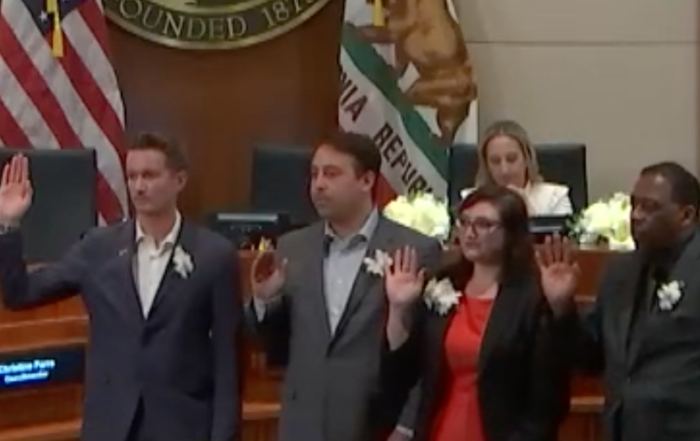Toward the end of their meeting Tuesday night, the Santa Monica City Council briefly heard councilmember-sponsored motions to study a minimum wage for healthcare workers and another to put limits on fractional ownership of residential property.
Healthcare Minimum Wage
Councilmembers Jesse Zwick and Phil Brock put the proposal forward to study the development of a $25 minimum wage for healthcare workers, the language for which recognizes, “Healthcare workers served our city tirelessly and bravely throughout the COVID-19 pandemic, and whereas healthcare job vacancies are rising as workers on the frontlines deal with the emotional, mental, and physical fallout of providing healthcare during a pandemic and whereas the City of Santa Monica requires a sufficient healthcare workforce to ensure our community remains healthy and safe.”
A similar measure was passed by the Culver City Council late last year for workers at Southern California Hospital, but the newer, more conservative council majority that took over after the November elections reversed the action.
Mayor Gleam Davis said a similar measure is making its way through the California Legislature, so she didn’t feel the council was out of touch with such a proposal. She did say, however, that she hopes the council would define “health care worker” to include home health care workers, who she called some of the lowest paid in the industry. Brock agreed the study should bring back information on both hospital-based workers as well as home-care workers.
Brock spoke of being at St. John’s hospital recently and called all the workers there “exemplary.” He said, “No matter what they’re getting paid, it’s not enough. They really deserve that higher pay scale.” He also said healthcare workers need to be paid well enough to want to stay, as he wants their institutional knowledge to be passed on to future workers.
Councilmember Zwick noted, “Had the Federal minimum wage been raised according to inflation over the last several decades, it would be beyond $25 dollars an hour.”
Councilmember Caroline Torosis noted that the hospital industry spent $12 Million last year to fight such a proposal in 10 cities across the state, and she said she would much rather see that money go to the healthcare workers. She added, “I am not convinced that our healthcare providers aren’t making a profit off the backs of our workers.”
The vote to approve staff to study the item and bring an ordinance back to council was passed unanimously, 6-0, with Councilmember Christine Parra absent.
Limits on Fractional Ownership of Residential Property
Citing a rise in corporate ownership in residential property, coupled with an increase during the pandemic for families to have second or even third homes, Councilmembers Torosis, Parra, and Mayor Pro Tem Lana Negrete brought forward a request to develop an ordinance that would limit “fractional ownership” of residential property. Fractional ownership is the practice of multiple parties owning a portion of a vacation home and treating it like a timeshare through a formal arrangement. The allotted time owed to each party would be based on their percentage of ownership.
The practice is driving up the costs of housing and limiting the availability of housing in the community. The councilmembers cite the Federal Reserve Bank of St. Louis, which issued a statement that median home prices increased nationwide by almost 60,000 dollars in the last year. At 29 percent, California currently ranks fourth in the states with the highest percentage of single-family homes owned by corporations.
Councilmember Torosis stated that other cities in the state that draw tourists, including Beverly Hills, Carmel, Newport Beach, and St. Helena have all looked at the issue and have designs on limiting it.
A motion passed unanimously among the six councilmembers present asks the city manager and city attorney to return with recommendations for council action to regulate fractional ownership of single-family homes and residential condominiums.
Photo by PeopleImages
Stay informed. Sign up for The Westside Voice Newsletter
By clicking submit, you agree to share your email address with Westside Voice. We do not sell or share your information with anyone.








